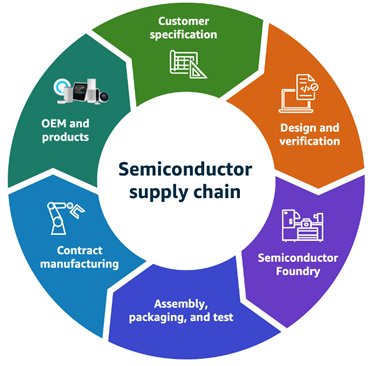The US government’s offense, defense, and special teams’ strategy for America’s Semiconductor Segment
As most of us know, football season began across America last month, with both college and the NFL seasons starting. With the recent moves by our Federal Government, it seems they have a bit of a football game strategy when it comes to the semiconductor market segment.
If for example you look at NFL teams that make the Super Bowl or win it, the coach is always talking about the importance of balance in all three phases of the game: offense, defense, and special teams. So, taking that perspective I think it applies in a way how our Federal Government is playing the Semiconductor game with the goal of winning for America. The outcome of this game will not be decided in 60 minutes like the Super Bowl but will take years.
Sean McVay – Coach of Super Bowl Champ LA Rams 2022
From an offensive perspective, the government passed the CHIPS and Science Act, investing billions of dollars to support semiconductor production coming back to the US and incentives for future R&D investments so the USA continues to be a leader in this technology area. One goal of this act in terms of scoring is to move semiconductor production in the US from the current 12% upward with hope of getting back to over 30% where we once were in the coming years. So, this is like scoring more points – offensive strategy!
Next came the defensive moves. All good defensive goals are to slow down and try to stop the opponent from scoring. So, the first play called was telling AMD and NVIDIA that they can no longer sell AI chips to China. The second play called was telling Applied Materials and other semiconductor production equipment suppliers that they can no longer sell 14nm or below products to China. More plays to be called may be in our future. These plays are obviously defensive calls to slow down and stop the advancement of China in the semiconductor technology area.
https://focustaiwan.tw/sci-tech/202209130015
Lastly, you have special teams. Those players are not on the field for very many plays, but at times are game changers. In football that means running back a kick-off or punt for a touchdown. Making that long field goal to win the game. The special teamers I am talking about in this situation are the money people. The government is now looking to tell the financial markets that they cannot invest in foreign semiconductor companies.
So, it seems clear to me that our government started looking at the start of football season and decided they could leverage how the game is played and coached implementing strategies in the three phases and applying that to the semiconductor situation with China.
Supply Chain Getting Better or Worse?
Now that we are playing football in the semiconductor market, the natural question is will this help or hurt the supply chain situation. The semiconductor supply chain still has problems, especially around FPGAs. Lead times for FPGAs quoted by distributors are either over a year or not at all. ASSET for example is not a big purchaser of FPGAs, but they are critical to our business. We must go to brokers to get them and that seems that this will continue into 2023.
If China businesses cannot get equipment to make chips due the USA defense, can’t get AI chips to put on boards that go into systems for customers and maybe funding dries up…..you don’t have to have an MBA to figure out the supply chain drama will continue well into the future. Take my FPGA example, China now has as many as seven new FPGA companies domestically trying to fill its domestic void. So most likely more Chinese domestic companies will sprout up as the US policies are deployed.
High-Level view of Supply Chain
Impact of Unintentional Consequences
From Newton’s Third Law, for every action there is an equal and opposite reaction. With all these changes, the impact on end-markets like systems, computers, cars, medical instruments, etc. that all use semiconductors are really tough to forecast. But it seems that chaos in some or all of these areas has the potential to occur, so all businesses need to try to anticipate what bad thing might come their way and take actions as best they can to avoid them, have a plan B or some strategy to minimize their business impact. The unknown is coming, do your best with your own offense, defense, and special teams so you can continue to win in your market.
Final Points for this Blog – Innovation and IEEE Standards
In addition to the US government strategies above, all of us in the semiconductor industry need to continue to innovate, either as individual companies to be more competitive or via things like contributing to IEEE standards that help things work more efficient and cost effective for the market. Key things ASSET is focused on to help in this area are IEEE 1687 (IJTAG) and looking at a relatively new standards activity IEEE p2929. Both standards are focused on helping with test and diagnostics of very complex SoCs, multi-dies in a package and chiplet-based ICs today and well into the future.
https://www.asset-intertech.com/products/scanworks/scanworks-ijtag-test/
It is in the best interest of all of us to hope things between countries can improve so we are all working together for a better and safer future for everyone.




